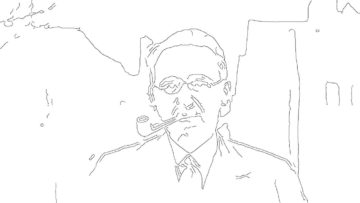 Yulia Gromova interviews Quinn Slobodian in Strelka:
Yulia Gromova interviews Quinn Slobodian in Strelka:
Yulia Gromova: The founding fathers of neoliberalism—Friedrich Hayek, Ludwig von Mises, and others, as you describe in your book, have created the basis for today’s global world order. They laid the foundation for institutions including the European Union and the World Trade Organization (WTO). What was particular about the Geneva School of neoliberalism?
Quinn Slobodian: What occurred to me was that capitalism hadn’t really had to deal with democracy until the twentieth century. It could reproduce itself and all of its inequalities by simply keeping some people out of the political picture, and denying them a voice in the political process.
At the beginning of the twentieth century, most of the world was in colonial status. The parts of the world that were in the metropole—the center of the empire, or had independence like the United States or Latin American countries—did not have anything close to universal suffrage. Women in every case were still denied the right to vote—allowing women to vote happened experimentally within the Paris Commune in the 1870s, but was quickly withdrawn and was only rolled out in exceptional cases more after the First World War. And in places like France, not until the Second World War.
So, the core question for Vienna school neoliberals in the 1920s and 1930s was first of all how to expand the voice within rich Western populations to include people without property and women. And then how to expand it beyond Europe to the former colonial countries of Asia, Africa, and parts of Latin America. And how to do that while preserving a system which has been proven to produce jaw-dropping inequalities between populations and parts of the world.
The first problem that they saw was decolonization. The dissolution of the Habsburg Empire after the First World War accompanied the end of the Russian and Ottoman Empires. It was the triumph of the nationality principle for the first time. That also came along with a certain idea of self-determination and popular sovereignty at the national level, which was more asserted than practiced until after the First World War.
More here.
